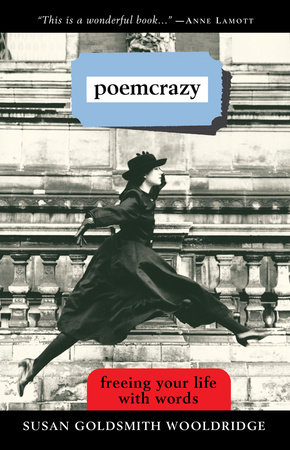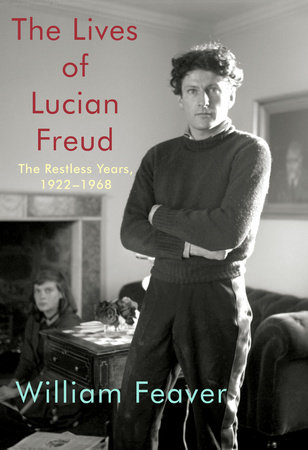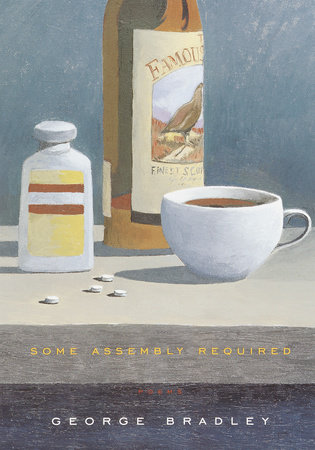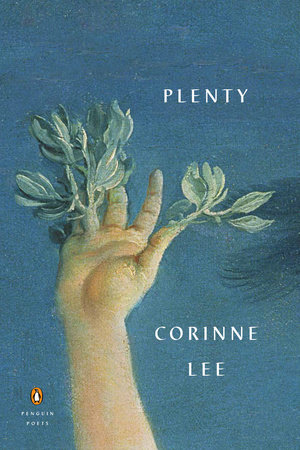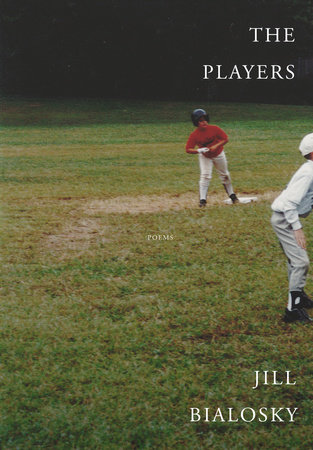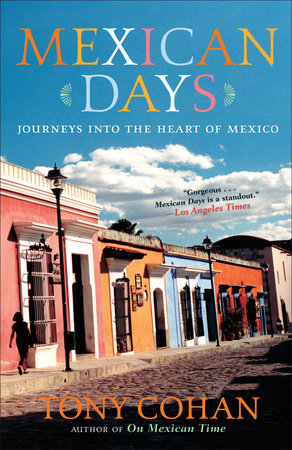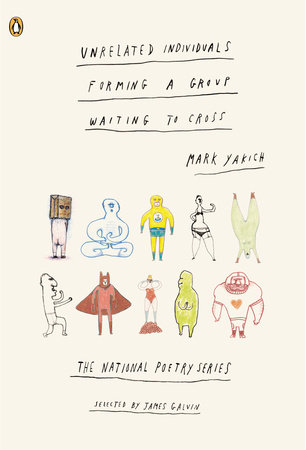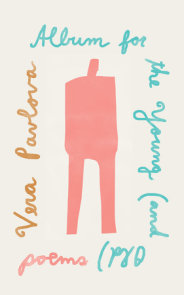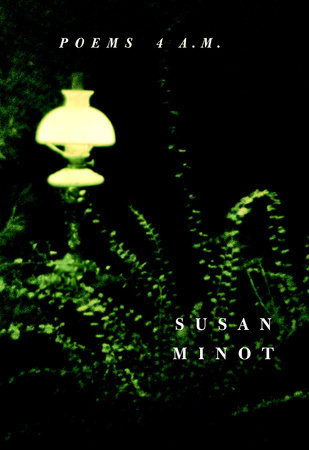Author Q&A
Q: Vera, your poetry has appeared in the New Yorker, the New York Times, and has been featured in the subway systems in New York City and in buses of Los Angeles as part of the “Poetry in Motion” series, but IF THERE IS SOMETHING TO DESIRE is the first full collection of your poetry to be published in English. The collection was translated by your husband Steven Seymour – what was it like working together?
A: A translator is akin to a detective who follows the trail to “the scene of the crime,” i.e. to the point at which a poem came into being. In that sense, Steven is in a unique position: he is not only “at the scene of the crime,” not only has he apprehended the criminal, but he is also often “the fellow perpetrator.” The poems he has to translate are generated by the life we are living together, and many of them are my confessions of love to him. He has all clues at his disposal, and there is no person in the world who could possibly understand my poems more exactly and deeply than Steven. In this regard, I am very fortunate, which can hardly be said of him: I can see how he toils on numerous iterations of his translations, how he tries to convey in English the multitude of nuances he finds in the originals. I also see how he suffers under the burden of responsibility. I know many married couples in which both spouses are poets, but I suspect history knows no cases of poet-translator marriages. A good translation is a happy marriage of two languages, and it is just as rare as happy marriages are. Mutual understanding is the foundation of our marriage, and that is something we learn every day. We have the gift of reading each other’s thoughts, and on two occasions we discovered that we had seen the same dream in our sleep. If you want an elegant formula, here it is: a good translation is the same dream seen by two different sleepers.
Q: You are shockingly prolific, with several thousand poems written and counting. When did you first start writing poetry and why?
A: My first poem was a note I had written to send home from the maternity ward. I was twenty at the time, and had just given birth to Natasha, my first daughter. That was the kind of a happy experience I had never known before or after. The happiness was so unbearable that for the first time in my life I wrote a poem. I have been writing since, and I resort to writing whenever I feel unbearably happy or unbearably miserable. And since life provides me with experiences of both kinds, and with plenty of them, I have been writing for the past twenty-six years practically without a pause. I cannot afford staying away from writing. It could be called an addiction, but I prefer to describe it as my form of metabolism.
Q: Do you have a writing process that you can share with us?
A: The other day I was bragging to a friend of mine that I had a gift for finding lost things, thanks to a special method: I relax and wait until the lost object calls to me “Here I am!” I said I could recognize a key, a cell phone, a rubber band to tie hair, by their voices. My friend replied: “But that is exactly how you write poems.” I was amazed by the exactness of that remark, except that when it comes to poems, you never know what it is precisely you are looking for. All you know is that a) you need that something very much, b) it is somewhere nearby, perhaps in the most visible spot, and c) no one but you can find it. And that something, when you find it, takes the form of two or four ready-made lines that almost do not belong to you. As for the process of completing a poem, it is similar to recollecting, which is tantamount to the pains you go through when trying to recall a word you know, or a title, something that is “at the tip of your tongue” yet eludes you. For a poet, however, this involves recalling something that he or she never knew before. I feel all my future poems are already inside me, and all I have to do is recollect them. When I succeed at that, I feel perfectly happy and triumphant, wondering at the same time how I could forget something so simple. Every one of us knows that feeling, when we finally grasp an illusive name or a title. That’s the feeling that tells me: I have a poem. If I do not have that feeling, my poem has been fabricated rather than recollected, and no matter how pretty it may be, it is a stillborn child.
Q: The poems in IF THERE IS SOMETHING TO DESIRE often focus on love, lust and, of course, desire. You have been called an erotic poet by some – how would you describe your writing, your style and choice of subject matter?
A: Erotic poetry is the realm that made it possible for me to find my own voice and to be heard. And not only because in the Russian poetic tradition erotic themes have not been prominent and lofty erotic poems are incomparably fewer than the vulgarly and commonly erotic ones. For me, something else was of greater importance: like nothing else, the erotic subject matter has helped me “shape” my voice. It is easier to explain this in vocal terminology: my older daughter is a student of operatic singing, and I often attended her classes and was watched her learn the secrets of breathing from the diaphragm. Once I was delighted to hear her teacher say to her: “Natasha, sing from your uterus.” I understood at that moment that the skill of singing is not in the ability of sending or casting your voice into the audience; rather, it is the question of placing the voice within your body in a way that turns the body into a resonating chamber. Poems, too, need to be written with your whole body. The first time I had succeeded at achieving that effect was when I wrote erotic poems. All real poems are erotic in their essence. For me, inspiration is an act of lovemaking with language. I can always tell when language wants me. And I never say “no” to it. For me, it is always good. Is it good for language? Never as good, I am afraid, as it is for me.
Q: Speaking of opera, you studied music and once planned to be a composer – what role does music play in your life now?
A: Poetry and music are blood relatives. First poetry on Earth was sung. As Mandelstam puts it in his celebrated poem “Silentium”, the word emerged from music as Aphrodite did from sea foam. And Mandelstam knows what he is talking about: as a child, he attended a music school. Tsvetayeva from her early childhood was trained for a career of pianist; none other than Scriabin predicted that Pasternak would grow to be a composer. The school of music is the best of schools for a poet. I am grateful to my parents for their decision to enroll me in a music school when I was five. I studied music for eighteen years: at the Rakhmaninov School of Music, at the Schnittke College of Music, and at the Gnessin Academy of Music. And now music teaches me to write poetry. Everything I absorbed in classes on composition, harmony, and polyphony, has been useful in writing poems. Moreover, the very course of events in my life, the way time flows in it, seems to be governed by the laws of music. Music is my consolation and refuge. Pushkin says that “only love is better than music, but then love is a melody.” Music and love, only they make you live here and now, make you feel being alive, and I believe that’s what happiness is.
Q: Who are some writers that influence and inspire you?
A: Here I draw a line between infatuation and love. There are authors I am attracted to, whose books I read and enter into a kind of love correspondence with them, but only in few cases such infatuation transforms into love. I read and re-read such authors repeatedly, see them in my dreams; they seem to be my relatives. I even feel embarrassed naming the authors of the former kind: a love made publicly known rarely lasts long, as Andreas Capellanus would have it. The authors of the latter kind I name proudly: Pushkin, Nabokov, Brodsky, Tolstoy, Mark Twain. There is also a third category of attachment that one carries within like a wound that never heals. For me, two names stand for that: Anna Frank and Maria Shkapskaya. At times I feel my predicament is to write what the two have left unwritten.
Q: Who is the audience you envision when you write, and does that match the audience that you meet at your readings across Europe and in the US?
A: I have no audience in mind when I write. Sorry is the tight rope walker who glances at the faces of spectators, as he strolls above a city square! What I am engaged in is an epistolary exchange with myself. As a teenager at a summer camp, I used to write letters to myself and mail them to my home address. When I went back home, I received those letters, read them with great interest, and until this day I am replying to them, as well as to the letters I keep receiving from the future. The recipient and the sender of those letters is one and the same person, and only poems can serve as replies to such letters. This is a highly private kind of correspondence but, paradoxically, in poetry the more private a statement is, the greater the number of people capable of sharing it. Very frequently I hear my readers claim that I say in poems what they feel but cannot express. Who is my reader? I do not know, nor do I need to know. But I am grateful to people who come up to me after readings, who quote my poems in Live Journal, who write to me. That gives me strength to get through the difficult days when I cannot write. On such days I feel wretched and need support from the outside. But when I write, no one can help me.
Q: You split your time between Moscow and New York City – do you feel yourself a voice for one city more than another? Does your writing change depending on where you are?
A: Steven and I are troubadours: during the past several years we got accustomed to being nomads. For example, here is the geographical and temporal breakdown of last year: five months in Europe, four months in the United States, and three months in Russia. This year we will have spent more time in the US, but we have no idea what next year will look like: tomorrow we may get a letter that will totally change our plans. But I do have two homes: one in Moscow and one in New York City. The Russian language has an idiom: “mother homeland.” Russia is my Mother, and America is my Mother-in-Law who likes me, and I feel it. Within the last several years I have crossed the Atlantic thirty times, and each time it was a homecoming.
As for the contents of my poems, they do not change depending on geography. Poems have to do with the geography of the inner world. I continue corresponding with myself, regardless of where I happen to be. The only thing that changes is the frequency of that correspondence. It is desirable to have silence outside, so as to hear your inner voice. And although we live in the center of Manhattan, in this sense New York offers more silence. In Moscow, I am a mother, a daughter, a granddaughter, a childhood friend, a famous poet. In New York, I am a teenager who for the first time got away from home and is enjoying the freedom and the novelty of the experience.
Q: What is your favorite poem?
A: It is so difficult to answer this question, like the one about the book to take to an uninhabited island, or to be placed in your coffin. Let it be Pushkin’s Eugene Onegin. My Grandmother Rachel is ninety-six years old, and she can barely read these days, but she remembers almost the entire text of Eugene Onegin by heart, the work that amounts to tens of pages and hundreds of stanzas. She quietly recites the text to herself, and that is her substitute for reading.



